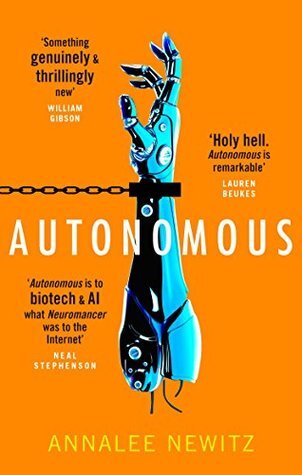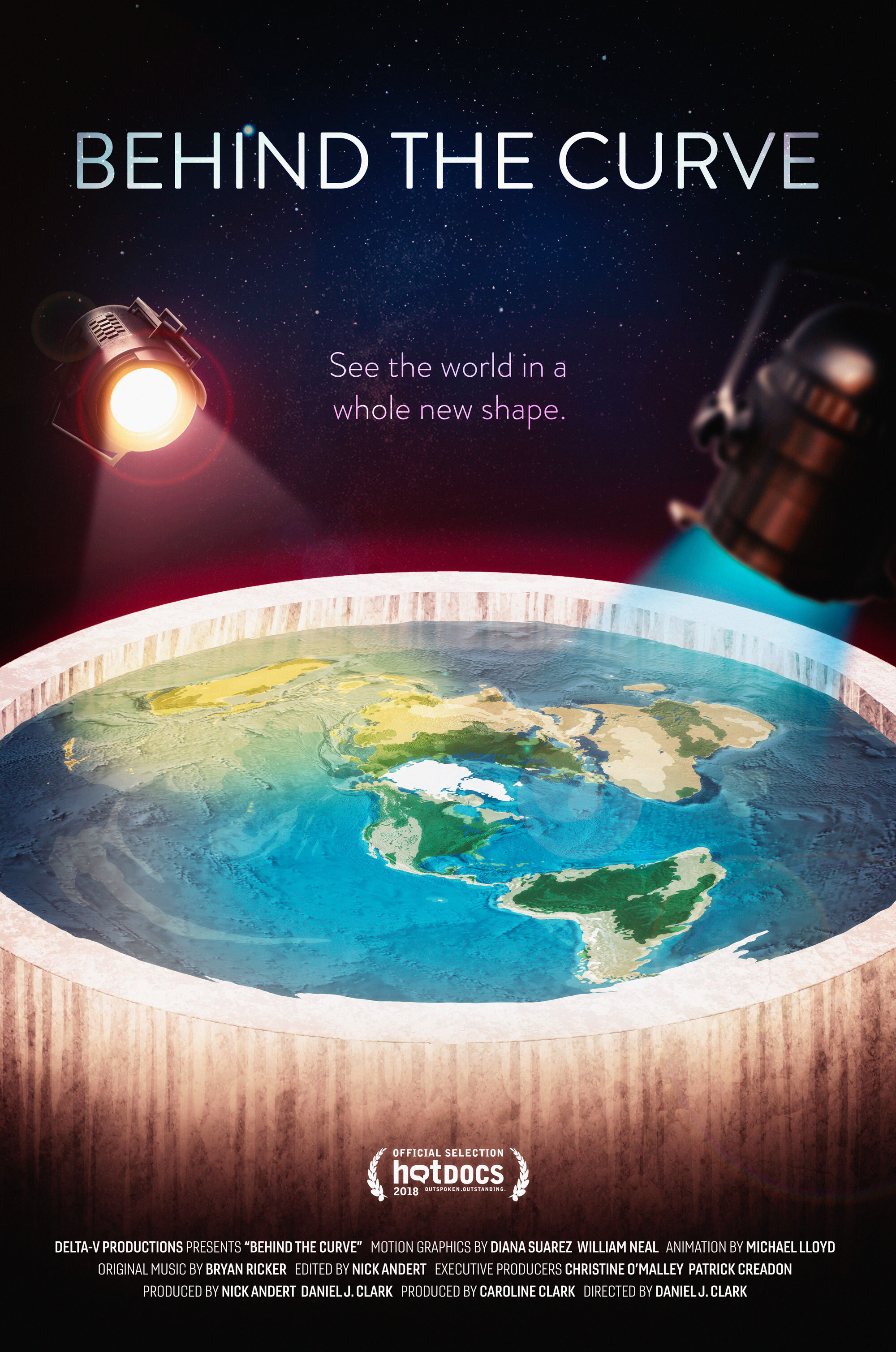The Global AI Narratives Christmas Reading (and Watching!) List
It’s that time of year again when most of us are looking forward to spending time with family and taking a break from work, envisioning relaxing evenings in front of the fire and the absolutely essential Christmas Eve Die Hard movie marathon - but we all know the reality is that three days into the break a family feud has started over a game of Monopoly and the debate over the inclusion of bread sauce at the Christmas table has become political. So, for all of you out there looking for a brief respite from the festivities (or a last minute gift for the sci-fi geek in your life), here is the Global AI Narratives team’s personal recommendations for AI-inspired escapism this Christmas, complete with a handy ‘Robots’ rating.
🤖 - Seriously bad. Monopoly is starting to look like a great idea.
🤖🤖 - Finishable, but with great resentment.
🤖🤖🤖 - Entertaining, but unlikely to make or break your Christmas.
🤖🤖🤖🤖 - Solidly enjoyable. Best served with a glass of mulled wine.
🤖🤖🤖🤖🤖 - A Christmas miracle.
Stephen
Terminator: Dark Fate (2019)
🤖🤖🤖
(but only because Linda Hamilton is amazing!)
We all know that the original Terminator movie did for AI what Bruce Willis did for white vests (Yippie Ki Yay, anyone!?) but this incarnation of the infamous killer robot franchise has worked hard to offer a touchstone for a more inclusive vision of Hollywood AI narratives.
The story itself hasn’t strayed much from the original - Terminators are still being sent travelling back in time in an attempt to prevent future human resistance against AIs by pre-emptively killing those involved. Some of the themes from the first two (and arguably best) Terminator movies such as fate versus determinism and the human over-reliance on technology feel sidelined in the movie - and whilst somewhat uncharitable, it feels like director Tim Miller, faced with a rehash of a rehash of a plot, used his Deadpool credentials to drive for a bigger explosions budget above a thoughtful exploration of AI risks. This is a real shame because the present reality of AI technology offered a platform for this installation to reignite this series as a relevant and forward-thinking franchise.
However, it’s not all doom, gloom and robot uprisings! The strength of Dark Fate comes from a more thoughtful approach to casting than Hollywood usually offers; in an age where older ladies in Hollywood find their casting options limited to grandmothers and ageing royals at anything over 40, it’s refreshing to see Linda Hamilton reprise her role as Sarah Connor having been effectively written out of the franchise after Terminator 2: Judgement Day back in 1991. Dark Fate Producer, James Cameron, explained that the scarcity of older female action heroes relative to older male action heroes (think Clint Eastwood, Bruce Willis, and even ol’ Arnie himself) left a gap in Hollywood’s approach to female empowerment and decided to address this omission with one of the most iconic action heroines of all time - re-enter Linda Hamilton as Sarah Connor, all around action grandma and fantastic with it. Whilst Linda Hamilton clearly steals the limelight in Dark Fate, Arnold Schwarzenegger also puts in a solid performance that shouldn’t be forgotten - this film is at its best with these two heavyweights of action sharing the screen. Overall, definitely worth a watch, but not because of the killer robots.
Kanta
Autonomous
by Annalee Newitz (2017)
🤖🤖🤖🤖🤖
It’s not often that patent pirates, increasingly self-aware robots, human rights issues, intellectual property rights issues and workaholism share space in a novel in a way that really works, but Annalee Newitz really hits the nail on the head with this relatively short offering. The length here (300 pages) is what makes this story great rather than just good - to fit such an expansive narrative into such a short space, and fully realise such a range of characters requires tight writing and pacing that really hits the ground running. Jack, the reverse-engineered drug pirate, and Paladin, the corporation-controlled robot, feature as the main characters, each on a different side of the property rights divide and each struggling with their place in society and the relationships with those around them. For a plot with such a focus on equality and the devastation that a lack of equality in society can cause, it’s wonderful to find a novel so devoid of stereotypical antagonists; each character, central or peripheral, has their own unique motivations and struggles, and these drive the plot forward and support the reality of the Autonomous world.
Autonomous is a joy to read with its nuanced exploration of issues round AGIs in a future society. Not only are social and ethical issues around robots and AI explored sympathetically, they are also carefully situated within the worldbuilding, rather than feeling like an afterthought. One of the most complex ideas explored in this novel is how human rights and robot rights might converge in the future. Rather than robots simply being granted a version of personhood, Newitz imagines how human rights might be eroded in the pursuit of equality. Even though this narrative is set in a future Canada, contemporary issues around equal access to healthcare and big pharma are considered from an extrapolatory perspective, reflecting current concerns around the ever-widening gap between the healthcare haves and have-nots.
It’s so refreshing to read a science fiction novel that truly explores current concerns around AI rather than relying on overused and hyperbolic tropes to recreate the robot uprising. If you read one AI novel this year, it really should be this one.
Tonii
Exhalation
by Ted Chiang (2019)
🤖🤖🤖🤖
Recently nominated for the Goodreads Choice Awards 2019 - Science fiction, this collection of short fiction from Ted Chiang is a thought-provoking journey through the future, and, in some cases, the past. The nine short fictions cover such varied topics as time travel, augmented memory and narrative traditions, free will, the sentience of parrots, and creationism and belief. However, the two that stood out most for me in this collection are the Hugo and Locus award-winning “The Lifecycle of Software Objects” and the equally critically acclaimed titular short “Exhalation”.
“The Lifecycle of Software Objects” considers the responsibility of humans when our digital creations develop and grow within their digital lives. The cute digients (digital entities) were originally designed to be pets to be looked after by humans, a kind of digitally superior Tamagotchi for the modern age. However, as with most fads the human owners of these digients begin to lose interest in their charges. Chiang explores the idea of AI developing out of an almost organic learning curve rather than programmed superintelligence, and how humans could or should take responsibility for their own technological developments. By carefully blending ideas of human fallacy with deliberately dependant AIs, this story offers a novel take on the human AI relationship and the propensity for abuse that relationships with an unequal balance of power can engender.
“Exhalation” describes a very real form of self-reflection; in a world of automatons who use refillable gas-canisters for lungs, the reason for a change in time is explored through a scientist inspecting his own mechanical brain to better understand himself and his kind. This is a particularly nuanced offering from Chiang, giving the automaton scientist a sense of genuine humanity, imbuing a world so very different from our own with relatable hopes and fears, promises and threats. Whilst not a particularly hopeful story, nor does this narrative offer a hopeless future for automaton kind - or for this scientist at least.
Overall, Exhalation offers an intriguing collection of short fictions perfect for picking up and putting down over the festive season. Whilst one or two stories seem to fall slightly short of Chiang’s usual precise and cerebral style (the parrots, anyone?!), there is enough exceptional writing to more than make up for this.
Tom
Behind the Curve (2018)
🤖🤖🤖🤖
Behind the Curve, a Netflix documentary about the contemporary Flat Earth movement, questions not only how the belief that the Earth is flat spread in the age of YouTube, but also how science is being communicated to the wider public and why it fails to satisfy some people’s desire to know. Because this film - and this odd movement - is about curiosity; not so much anti-science, as science gone wrong. We see, for example, members of the Flat Earth community performing experiments meant to prove their point, we see them fail and try again. We also follow them as they convene for a large conference in Dallas, Texas, where they get to share the results of these experiments with other “Globe-skeptics.”
And yet, the conference turns out not a mockery of academia, but a genuine attempt at setting up something alternative to the mainstream. Behind the Curve probes how our hopes and fears for science are brought about, and how extreme visions relate to community building. A must-see for anyone in academia willing to engage with audiences that don’t know what science really is - or for anyone who simply wants to explore the world outside of their social media filter bubble.
Bonus SHORT Read
“A Priest, a Rabbi, and a Robot Walk into a Bar”
by Andrew Dana Hudson (2019)
🤖🤖🤖🤖🤖
(Available here, from Future Tense, a partnership of Slate, New America, and Arizona State University that examines emerging technologies, public policy, and society.)
“A Priest, a Rabbi, and a Robot Walk into a Bar” is a deeply reflective and absorbing short fiction which considers the potential for AI to support or undermine faith, with the addition of a great dollop of contemplation about dual-use technology and the unforeseen consequences of AI being co-opted by people with different aims.
Whilst writing sensitively and seriously about some incredibly contentious topics, Hudson managers to create an ultra-believable very near-future world in which the nuances of the AI risk versus reward debate today are cleverly mirrored. This is a quick read with great characterisation and a plot that thickens incrementally, which is no mean feat to achieve in less than five thousand words. This short fiction absolutely returns the time invested in reading it in spades.






